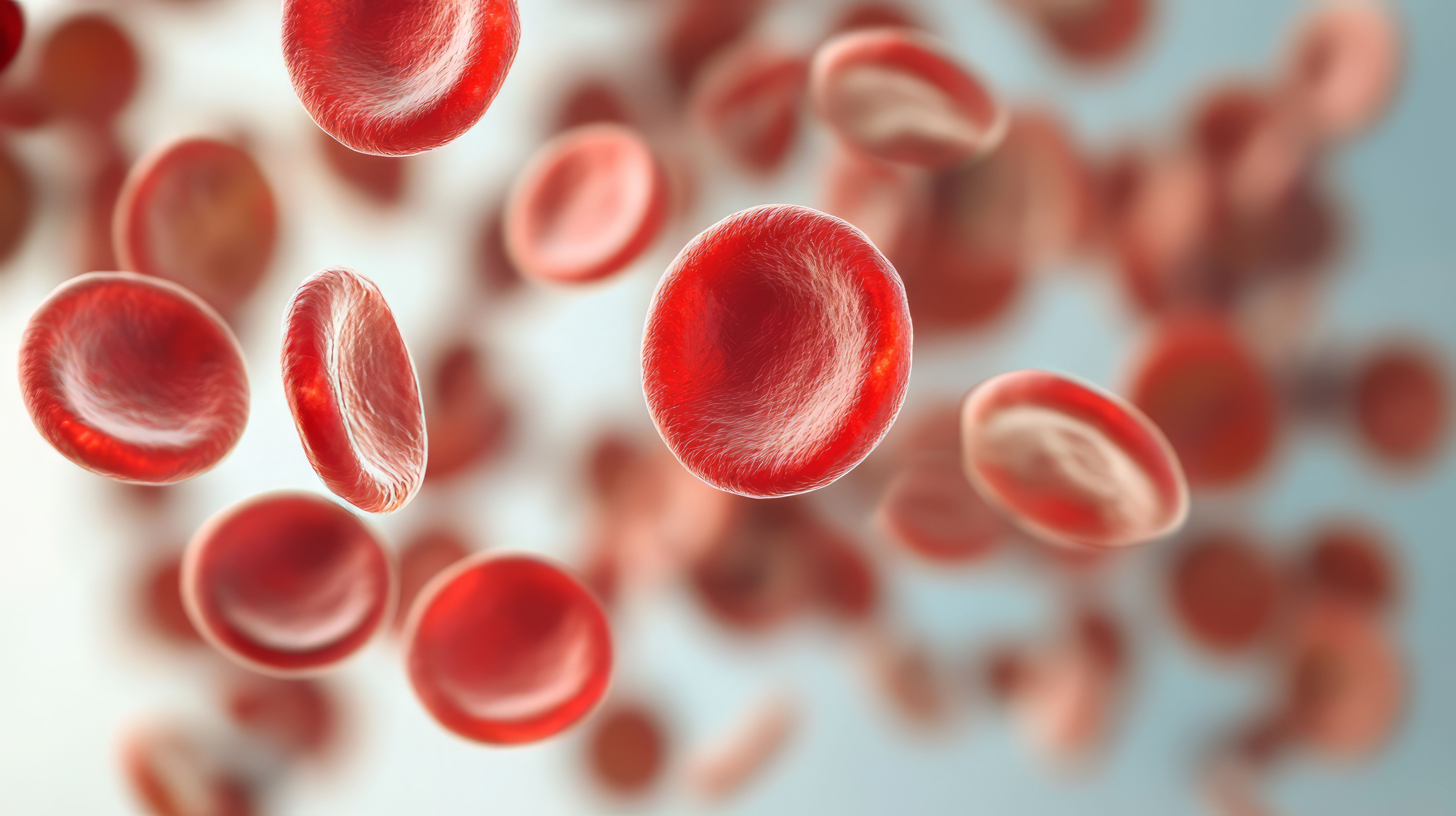May 20, 2025
Author(s): Alexandra Gerlach, Associate Editor
Data from the ADORE trial (NCT04097821) suggest combining ruxolitinib (Jakafi; Incyte Corp) with novel agents such as siremadlin (HDM201, Novartis), rineterkib (LTT462; Novartis), sabatolimab (MBG453; Novartis), crizanlizumab (Adakveo; Novartis), or NIS793 (Novartis) was superior to ruxolitinib monotherapy in patients with myelofibrosis (MF). The investigators reported improved spleen volume reductions (SVR), which were greatest in patients treated with ruxolitinib in combination with siremadlin.1
3D visualization of red blood cells | Image Credit: © Thipphaphone – stock.adobe.com

MF is a disease that falls under the umbrella of myeloproliferative neoplasms, which is a group of diseases characterized by the overproduction of red blood cells, white blood cells, or platelets in the bone marrow. In MF, there is an ongoing reduced production of red blood cells that leads to bone marrow fibrosis, extramedullary hematopoiesis, recurrent splenomegaly, and anemia. Other symptoms can include fatigue, nocturnal sweats, bone pain, enlarged spleen, and weight loss. can arise as a main disease (primary MF) or as a subsequent condition to essential thrombocythemia (post-ET MF) and polycythemia vera (post-PV MF). In some cases, MF can progress to acute myeloid leukemia.2
Janus kinase (JAK) inhibitors, such as ruxolitinib, are the standard of care for treatment and management of MF-related complications and have yielded significantly favorable outcomes; however, they are associated with various adverse effects (AEs). Ruxolitinib was initially approved in 2011 for first-line treatment of patients with intermediate- and high-risk MF, but the agent is known to be highly associated with increased risk of persistent or worsening anemia. Despite its widespread use, approximately 70% of patients discontinue treatment after about 5 years, with a third citing an inadequate reduction in spleen volume as a key reason.3,4
ADORE is a randomized, open-label, phase 1/2 open platform study evaluating the safety and efficacy of 5 novel agents with ruxolitinib in patients with MF. The trial utilized an innovative open platform design and enrolled 44 patients in part 1 of the trial who were treated with ruxolitinib in combination with 1 of 5 investigational agents: siremadlin, rineterkib, sabatolimab, crizanlizumab, or NIS793. The largest cohort (n = 23) received the combination of ruxolitinib (orally at a dosage of 5 mg) and siremadlin (orally at a dosage of 10, 20, or 40 mg).1,4
Among those patients, the most common AEs were gastrointestinal issues, such as nausea and diarrhea, and hematologic toxicities, including thrombocytopenia, anemia, and neutropenia. Based on safety and efficacy findings, once-daily 30 mg siremadlin taken orally on days 1 through 5 of a 28-day cycle was chosen as the recommended phase 2 dose.4
